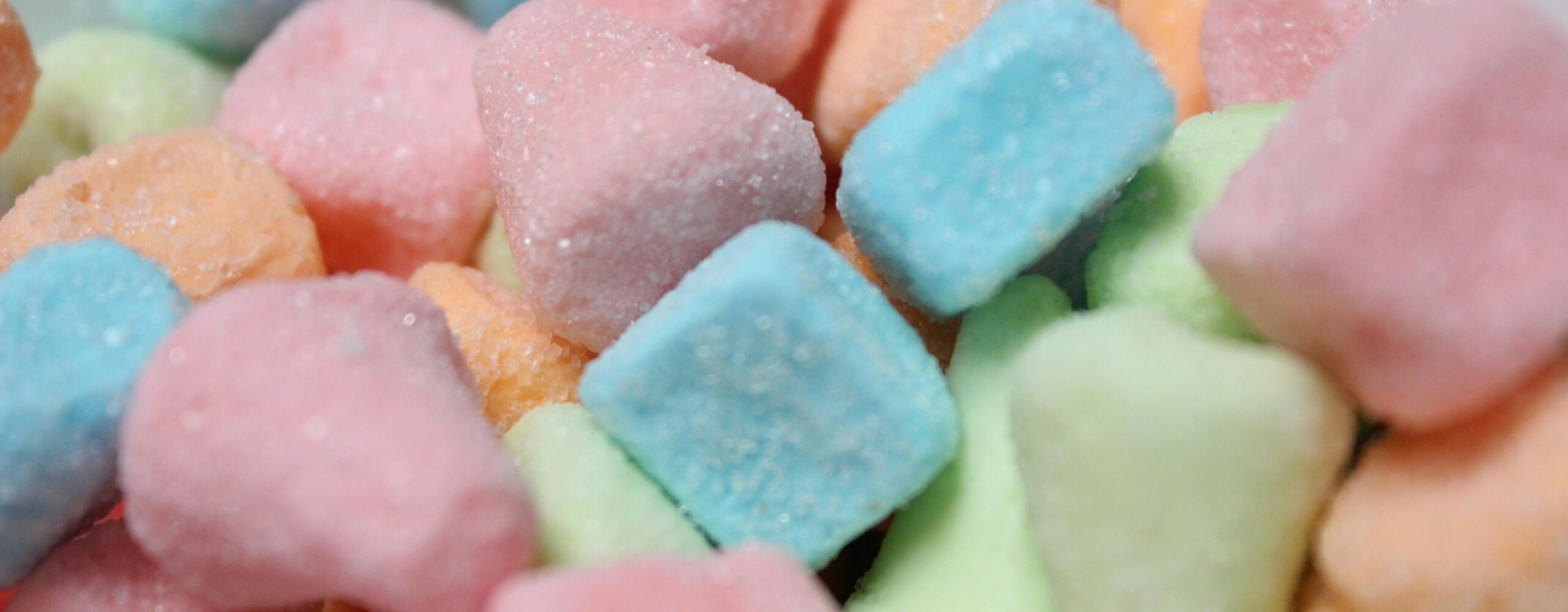
01 Jul The Dangers of Candy to Teeth
Candy is a beloved treat, but its impact on dental health is significant. While indulging in sweets is fun, understanding the dangers to your teeth can help you make better choices. Let’s dive into six key points about why candy can be detrimental to your dental health.
Sugar Feeds Harmful Bacteria
When you eat candy, the sugar in it becomes food for harmful bacteria in your mouth. These bacteria thrive on sugar, producing acids that attack your tooth enamel. Over time, this acid can create cavities, leading to decay and other dental issues.
The cycle is simple, you eat sugary candy, bacteria feast on it, and acid is produced. This acid erodes your enamel, the hard protective layer on your teeth. Without this protection, your teeth become vulnerable to decay and cavities. It’s like a constant battle in your mouth, and sugar is giving the bad guys more ammo.
To reduce this risk, limit your candy intake and practice good oral hygiene. Brushing and flossing help remove the sugar and bacteria, protecting your teeth from their harmful effects. Drinking water after eating candy can also help wash away some of the sugar and acid.
Sticky Candies Are Some of the Worst
Sticky candies, like caramels and gummies, are particularly harmful to your teeth. These candies cling to your teeth and are hard to remove, even with good brushing habits. The longer sugar stays on your teeth, the more damage it can cause.
Sticky candies lodge between teeth and in crevices, making it difficult for saliva to wash them away. This prolonged exposure means bacteria have more time to produce harmful acids. It’s a recipe for cavities and tooth decay.
Choosing less sticky alternatives or enjoying these treats in moderation can help protect your teeth. After eating sticky candies, brushing and flossing become even more crucial. Consider having a glass of water after indulging to help rinse away any lingering sugar.
Sour Candies Increase Acidity
Sour candies pose a double threat: they are sugary and highly acidic. The high acid content can weaken and erode tooth enamel, increasing the risk of cavities. When you consume sour candies, the acidity can cause immediate damage to your enamel. This erosion is compounded when sugar comes into play, creating an environment where cavities can form quickly. The result is a rapid decline in your dental health if these candies are consumed frequently.
To mitigate these effects, limit your intake of sour candies and wait at least 30 minutes before brushing your teeth after eating them. Brushing immediately can spread the acid around your mouth, causing more harm. Rinsing with water can help neutralize the acid and protect your enamel.
Hard Candies Can Break Teeth
Hard candies are not only sugary but can also cause physical damage to your teeth. Biting down on a hard candy can lead to cracked or broken teeth, which are painful and costly to repair. These candies dissolve slowly, bathing your teeth in sugar for an extended period. The risk of a dental injury from biting hard candy is significant. Such fractures can expose the inner layers of your teeth, leading to sensitivity, pain, and a higher likelihood of infection.
Avoid chewing on hard candies and opt for softer treats if you crave something sweet. If you do indulge, let the candy dissolve naturally in your mouth. This approach reduces the risk of cracking a tooth while still allowing you to enjoy the flavor.
Frequent Snacking Leads to Continuous Damage
Snacking on candy throughout the day can cause continuous damage to your teeth. Each time you eat sugary treats, your mouth’s pH level drops, creating an acidic environment that lasts for about 20 minutes. Frequent snacking means your teeth are constantly under attack from these acids, leaving little time for your mouth to recover.
This continuous exposure can lead to the gradual erosion of your enamel and increase the risk of cavities. To minimize this damage, try to limit candy consumption to mealtimes when your mouth produces more saliva to help neutralize acids and wash away food particles.
Dark Chocolate Is a Better Alternative
While many candies are harmful to your teeth, dark chocolate stands out as a better alternative. Dark chocolate contains less sugar than other candies and has properties that can actually benefit your oral health. It contains compounds like polyphenols, which can help reduce the growth of bacteria in your mouth and neutralize bad breath.
Additionally, dark chocolate is less likely to stick to your teeth compared to sticky candies, reducing the risk of prolonged sugar exposure and subsequent acid production. Opting for dark chocolate with a higher cocoa content can satisfy your sweet tooth while being a bit gentler on your dental health.
Wrapping the candy back up
In conclusion, while candy can be a delightful treat, it comes with significant risks to your dental health. From feeding harmful bacteria to physically damaging your teeth, the dangers are clear. By being mindful of your candy consumption and practicing good oral hygiene, you can protect your teeth and keep your smile healthy. Moderation and proper dental care are key. Enjoy your sweets, but remember the potential impact on your teeth. Making informed choices can help you avoid the pitfalls of candy and maintain a healthy, beautiful smile.
Knoxville Family Dental is committed to ensuring you and your loved ones achieve the excellent dental health you deserve. Schedule an appointment today!

About Our Team
Our team of dental experts have over 30 years of experience in the field of dentistry, and we’re passionate about educating our patients.

Sorry, the comment form is closed at this time.